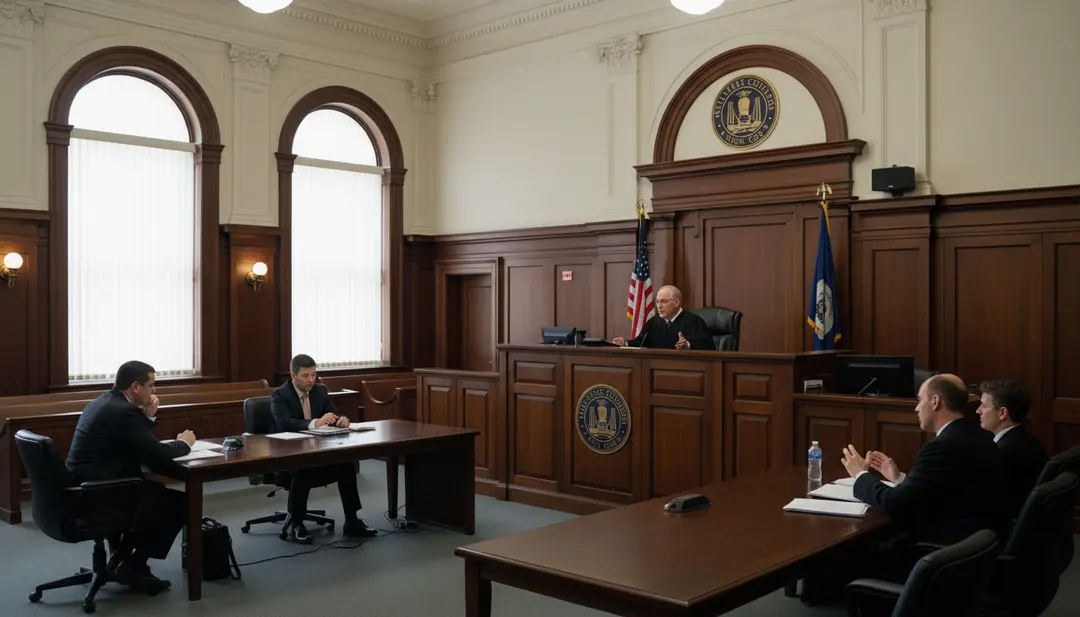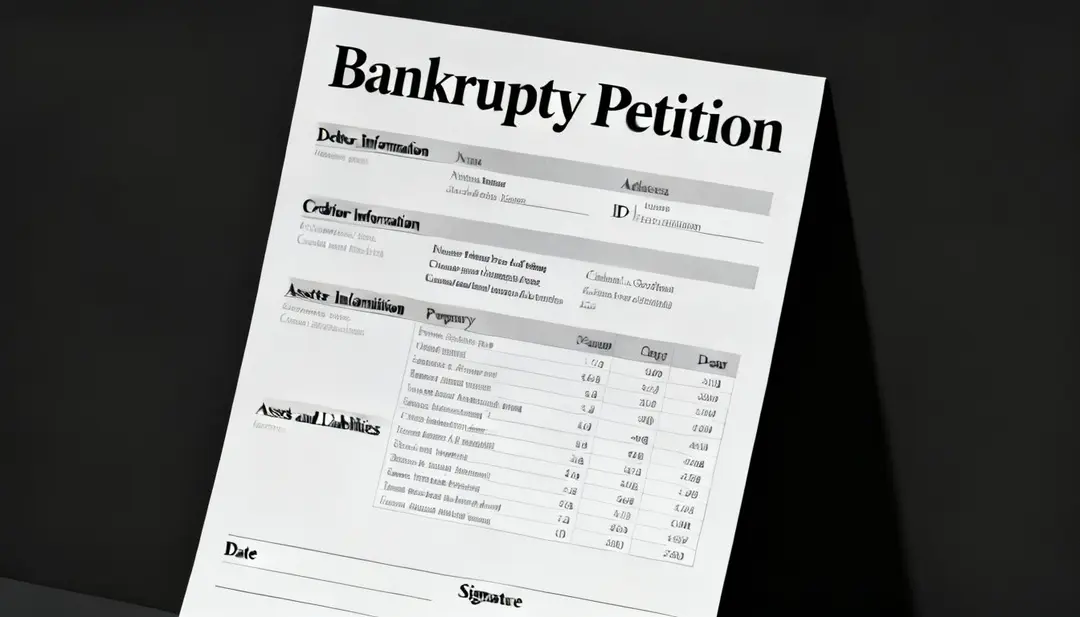Bankruptcy Debts: Why the Difference Matters to the HOA Board
When a homeowner files bankruptcy, your budget and collection timelines are at stake. The label on each dollar you are owed, secured or unsecured, can decide how much the HOA gets paid and when.
Put simply, secured debt is backed by collateral, like a home subject to a recorded lien. Unsecured debt has no collateral, like many fine charges. In bankruptcy, this secured or unsecured label changes your rights. A secured claim can be paid through a bankruptcy plan. An unsecured claim may get only a small share, or be wiped out.
Secured vs. Unsecured Debts: What They Mean for Your HOA
Think of collateral as the safety net. If the owner does not pay, collateral can be sold and proceeds can pay secured debts. A lien is your legal claim to that collateral.
• Secured debt: Tied to collateral. For HOAs, a valid, perfected assessment lien against the lot or unit converts qualifying assessment arrears into a secured claim.
• Unsecured debt: No collateral. Items like some fines and interest may not roll into the lien depending on your CC&Rs.
Why it matters in bankruptcy:
• A secured claim stands in line with other lienholders and can be paid from the property value or through a bankruptcy plan.
• An unsecured claim stands behind secured claims and priority debts, often receiving only a small share, or nothing, then getting discharged.
State law and your CC&Rs decide what charges attach to the lien.
How Collateral and Liens Protect Creditor Rights
Collateral is the exit ramp for repayment. A recorded and perfected lien tells the world you have rights against the property. Priority is the order of who gets paid first from the property value. Mortgages and taxes sit ahead of your lien, with your HOA lien next in line.
Liens can survive a bankruptcy discharge, subject to court orders and available equity. For example, if there is equity after the mortgage, the HOA’s secured portion may be paid at sale or through the bankruptcy plan. If there is no equity, your lien value may be limited.
Use complete records to defend your claim. Keep proof of perfection, detailed ledgers, and the contractual basis for each charge on your ledger ready to defend your claim.
HOA Liens as Secured Interests in Real Property
In many states, HOAs get a statutory lien for unpaid assessments that attaches to the lot or unit when the debt arises. Recording may be required to perfect it. Some states offer a limited super-priority slice for recent assessments, which can prime parts of a first mortgage. Other states cap what you can add to the lien or how long it lasts. In Arizona, the lien perfection for HOAs is statutory and automatic.
Costs of collection, late fees, and attorney fees may be part of the secured lien if state law and your CC&Rs allow it. Confirm with your attorney which charges are secured and unsecured once a case enters bankruptcy. For Arizona-focused context on other bankruptcy basis, review these insights on Bankruptcy Basics for Creditors.
Personal Obligations That Stay Unsecured: Fines, Fees, and Interest
Common unsecured items include:
• Stand-alone fines and violation penalties
• Certain administrative fees
• Some interest and late fees, if your CC&Rs do not include them
Unsecured claims often get a small pro rata payout share in bankruptcy, or nothing at all. Mislabeling unsecured amounts as secured can trigger objections and delay payment. For some clients, it’s helpful to split the ledger into two buckets: secured arrears and unsecured charges. Support each bucket with documents, and use consistent accounting codes so reporting stays clean, avoids objections, and streamlines the payment process.
What Bankruptcy Does to HOA Debts in Chapter 7 and Chapter 13
The automatic stay stops all collection, lien enforcement, and lawsuits against a debtor. You must halt collection communications unless the court expressly grants relief from the automatic stay. Pre-petition balances (those owed prior to the date of the bankruptcy filing) belong in your claim. Post-petition assessments (everything owed after the bankruptcy filing) are the owner’s ongoing personal duty while they hold title.
• Chapter 7: These are often referred to as ‘no asset’ or “liquidation” cases because debtors under this chapter have limited assets. A debtor with too much income or assets could be barred from filing Chapter 7. These cases are often resolved in under a year and a discharge can wipe out unsecured personal liability, but valid liens can survive.
• Chapter 13: Chapter 13’s allow a debtor to force creditors into payment plans over three to five years. Unsecured fines and fees may receive a small percentage, then be discharged. File a timely proof of claim, review plan terms, and object to errors in classification or amounts. If the Plan is approved, the Trustee will begin sending our payments to the creditors in accordance with the Plan terms.
Accurate classification of your debts boost recovery and lowers the risk of objections. For collections process support and compliant practices, see ideas for improving HOA assessment collections with legal experts.
Chapter 7: Surrender, Reaffirmation, and When to Seek Stay Relief
A debtor in a Chapter 7 case has a few options with their limited assets and secured property.
These include:
• Surrender: The owner gives up the home. You look to the lien and the property for payment. Track trustee activity and home equity for payment options.
• Reaffirmation: The owner agrees to keep personal liability. You can collect as allowed by law and the reaffirmation terms.
• No Reaffirmation (Lien survives, debt discharged): The owner keeps the home without reaffirming. Their personal obligation for pre-petition assessments is discharged, but the HOA lien remains secured against the property. The owner is still
responsible for post-petition assessments while they retain title, while the assessment lien on the home itself retains all amounts secured by the lien.
Watch the trustee’s abandonment, claim bar dates, and notice deadlines. Your goal is to protect the community’s budget and maintain services while respecting the stay.
Chapter 13: Secured Arrears in the Plan vs. Unsecured Fines
The plan can cure secured assessment arrears over time, often with interest if allowed. Unsecured fines and fees may get a small dividend, then be discharged.
• Review the plan. Object if it understates the secured amount or attempts to strip lien rights without grounds.
• Monitor trustee disbursements monthly and act fast if payments stop.
• Decide whether payments flow through the trustee or come direct. Match your ledger settings to the plan so your balances stay accurate.
• Monitor the account for post-petition assessment payments. Failure to pay those accruing assessments can create cause to lift the automatic stay.
Post-Petition Assessments and Ongoing Dues
While the owner holds title, new assessments continue to accrue. These post-petition amounts are separate from your pre-petition claim. The homeowner must pay those separately.
Some communities and mangers elect to split ledgers into pre- and post-petition ledgers to track plan payments and accruing assessments. It’s important that HOAs do not misapply funds.
Action Plan: Steps Your HOA Board Can Use Today
Here is a focused checklist you can use with your manager and law firm. It will help you handle secured vs unsecured creditor bankruptcy issues without guesswork.
1. Classify every charge as secured or unsecured based on state law and your CC&Rs.
2. File a timely proof of claim that separates secured and unsecured amounts.
3. Calendar plan deadlines, bar dates, and hearing dates.
4. Once a bankruptcy petition is filed, cease all communications with the homeowner and contact your attorney to resolve any outstanding debts.
5. Align with your HOA counsel on objections, payment plans, or stay relief.
6. Update ledgers to reflect pre- and post-petition assessments and charges so your cases start with clean records.
For hands-on help with liens, letters, and foreclosure decisions, explore Arizona HOA assessment collection services.
Work With a Law Firm Specializing in HOAs
Collections for HOAs raise unique issues and an HOA-focused attorney can spot errors in plan terms, secure stay relief when needed, and streamline your proof of claim. Ask counsel to:
• Review the claims and plan classification
• Prepare or respond to objections
• Plan next steps after stay relief, including whether to foreclose or wait
• Confirm fee recovery rights and align collection policies with current law
In many cases, debtors emerge from bankruptcy without their personal debt obligations, but their homes retain the HOAs assessment lien that permits foreclosure. For a broader view of responsible options when accounts age, see the guide to responsible HOA foreclosures.
Conclusion
Secured claims often survive bankruptcy as a lien against the property, while unsecured claims may get only a small share or be discharged. Correct classifications of charges drive better outcomes. Chapter 7 and Chapter 13 petitions treat your claims differently, and post-petition dues keep accruing while the owner holds title. File your proof of claim on time, classify every charge, and keep communications through your attorney. Before you act, talk with your HOA counsel and follow a tight checklist so your secured vs unsecured creditor bankruptcy strategy protects your community.
At Halk, Oetinger, and Brown, we provide flat-rate general counsel services and a no-cost assessment collection program to Arizona associations. We turn legal services into a fixed cost and focus on solutions, not billable hours. If you need help with claims, liens, or plan reviews, or navigating the bankruptcy process, our team is ready. Creditor liens bankruptcy outcomes improve when your records are clean and your strategy is aligned with your governing documents and state law.












